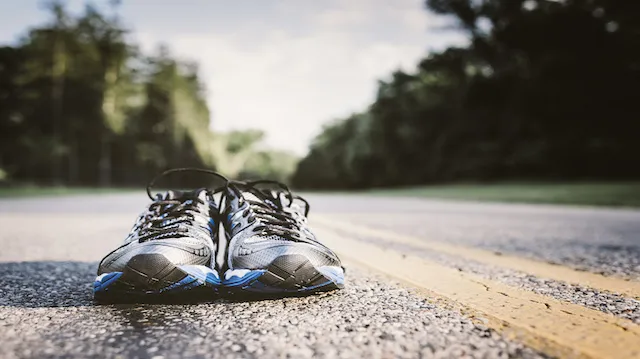Compared to our ancestors, today we live overwhelmingly sedentary lives. Every day revolves around immobility, as we force ourselves out of bed, sit down to breakfast, walk a few steps to the car, sit in traffic as we commute, then sit at work for hours. At the end of the day, we go home, sit on the couch, watch TV for a few hours, then return to bed.
Sitting around doing nothing isn’t a good thing, and it’s certainly not promoting a healthy lifestyle. As we sit in front of our computer at work or chow down on a bag of chips, images of our burgeoning bellies or rapidly expanding thighs guilt us into making a visit to the gym. You might work out for a while, sit on a bike reading a magazine or lift some weights or dumbbells — and suddenly the guilt is gone! We’ve avoided weight gain and got the blood pumping in one fell swoop, and a whole day of immobility has been washed away in a single hour.
Sadly, it seems that this reasoning is incorrect. A recent study published in the American Journal of Clinical Nutrition has found that a sedentary lifestyle is responsible for twice as many deaths as obesity. Conducted by researchers at the University of Cambridge, the study measured the height, weight and waist circumference against self-reported physical activity levels of over 330,000 European men and women for a whopping 12 years.
Researchers estimated that 337,000 of 9.2 million recorded European deaths were attributed to obesity, while 676,000 can be blamed on inactivity — sitting around and not moving regularly. And spending an hour at the gym after a day of immobility is not sufficient to counteract the detrimental effects.
The good news? A 20-minute walk every day could offset the effects of a sedentary lifestyle and add seven years to your life, reducing your chances of premature death by between 16 and 30 percent. The study showed that the benefits of a brisk 20-minute walk, which typically burns between 90 and 100 calories, were observed largely in those people studied who had normal weight. As the body mass index of test subjects increased, the benefits of that 20-minute walk decreased.
Researchers stated that although 20 minutes a day, every day, could make a huge difference to people’s health and longevity, this is the absolute minimum. Professor Ulf Ekelund, who led the study, stated, “Although we found that just 20 minutes would make a difference, we really should be looking to do more than this — physical activity has many proven health benefits and should be an important part of our daily life.”
The message is clear: The more you move around during the day, the healthier you’ll be and the longer you’ll live. While doing intensive exercise at the gym is certainly helping you to stay in shape, a daily trip to the gym alone is not enough.
The good news is, it’s ridiculously easy to incorporate movement back into your life. When you wake in the morning, take five minutes to move around with some gentle yoga or a few basic stretches. As cliché as it sounds, take the stairs instead of the elevator. Park your car further away in parking lots so that you have an excuse to walk for longer to wherever you’re going. Instead of sitting around watching YouTube videos on your computer at lunch, grab a buddy and head outside for a 20-minute walk before or after eating. And find excuses throughout the workday to walk around. Make multiple trips to the cooler for water, or take the long way to the toilet. Simple things make all the difference.
Government guidelines state that adults should aim to do at least 150 minutes of moderate-intensity exercise per week, carrying it out over 10 sessions or more. This should be your baseline for staying healthy and “stopping the clock.” Mix up your exercise routine by going for a long walk in the park or on the beach one day, enjoying a bike ride the following day, then going for a swim the next day, and so on. Keep things varied and you’ll really look forward to your daily bout of movement.
Got your attention? Find out how exercise — in addition to prolonging your life — can actually support healthy brain function and fight off dementia.
—Liivi Hess
Liivi is an Integrative Nutrition Health Coach and is training to become a doula. She inspires women to find peace and personal power by taking control of health and fertility naturally. Liivi‘s passion is ancestral nutrition and primal lifestyle design. She and her partner Will live between Toronto, Canada and Queenstown, New Zealand.
Sources:
http://www.dailymail.co.uk/health/article-2910206/Lack-exercise-kills-TWICE-people-obesity.html
http://europepmc.org/abstract/med/10593521
http://europepmc.org/abstract/med/8778547
http://jama.jamanetwork.com/article.aspx?articleid=387973
http://aje.oxfordjournals.org/content/151/3/293.short
http://aje.oxfordjournals.org/content/151/3/293.short

